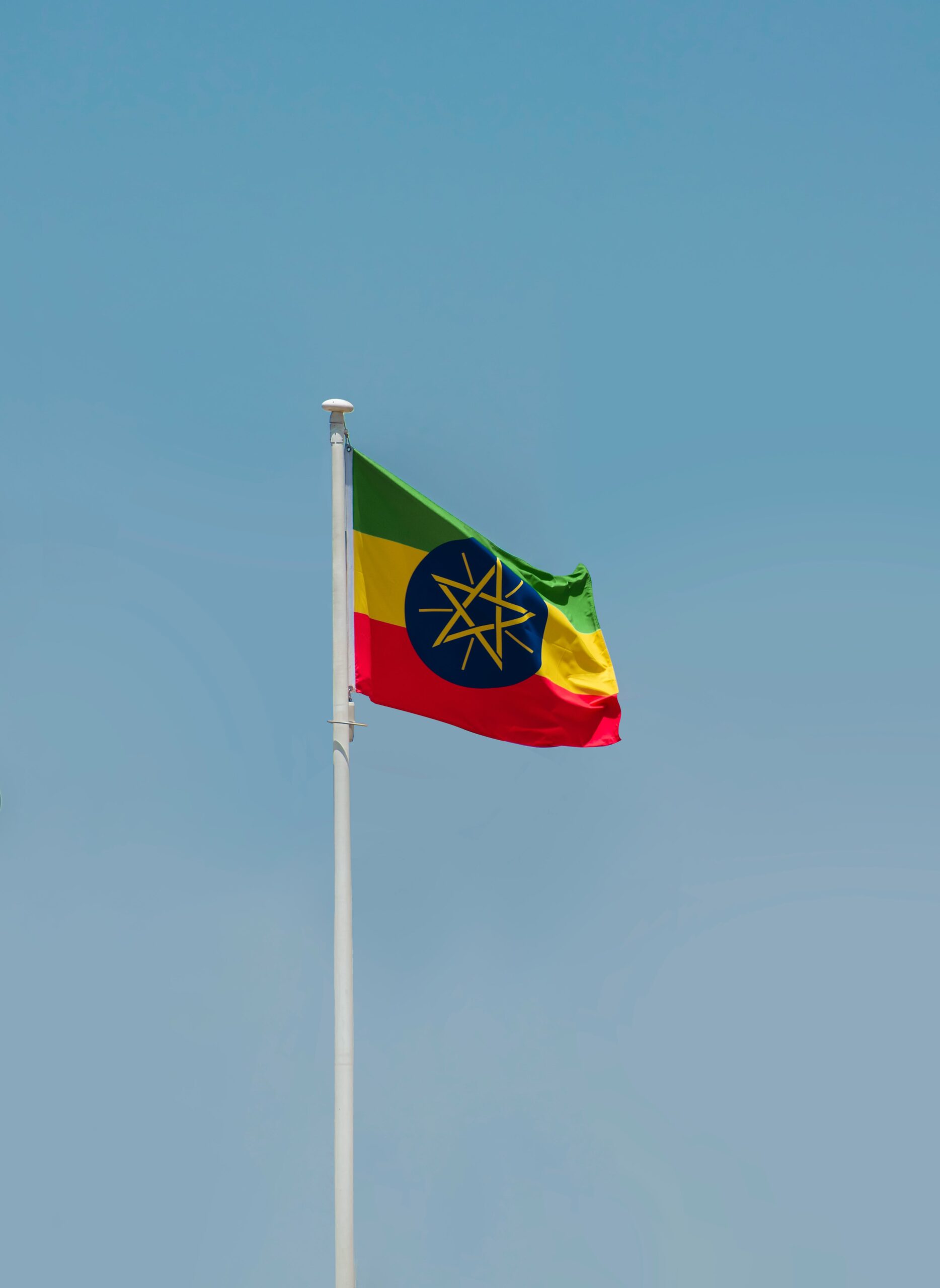Konso Ethiopia
The Unique Cultural Heritage of Konso Ethiopia
Located in the Southern Nations, Nationalities, and People’s Region of Ethiopia, the Konso people boast a unique cultural heritage that has captivated visitors for generations. Renowned for their distinct traditions and way of life, the Konso are known for their intricate terraced farming practices, rich history, and traditional governance systems.
One of the most remarkable aspects of Konso culture is their UNESCO-recognized system of age-grade organization. This system categorizes individuals into social groups based on age, with each group assigned specific rights, duties, and responsibilities. This structure fosters a strong sense of community and ensures that traditions are passed down from generation to generation.
The Konso people are also revered for their skilled craftsmanship, particularly in the art of wood carving. Elaborately carved totems, known as wakas, are erected in honor of deceased heroes and serve as a symbol of prestige within the community. These totems not only showcase the artistic prowess of the Konso people but also play a vital role in preserving their cultural heritage.
Furthermore, Konso is home to uniquely designed traditional villages that highlight the community’s emphasis on unity and cooperation. The villages are laid out in a circular pattern, with houses built closely together and connected by a network of narrow pathways. This architectural style not only promotes social interaction but also serves as a defense mechanism, providing protection against external threats.
Visitors to Konso have the opportunity to immerse themselves in the rich cultural tapestry of the region by participating in traditional ceremonies, witnessing age-old rituals, and interacting with the locals. The Konso Cultural Centre offers insight into the community’s history, beliefs, and customs, providing a comprehensive overview of this fascinating culture.
The unique cultural heritage of Konso Ethiopia is a testament to the resilience and creativity of the Konso people. By preserving their traditions and embracing their cultural identity, the Konso continue to inspire admiration and fascination among those who have the privilege of experiencing their way of life.
The Intricate Terraced Farming System of Konso
Located in the southern part of Ethiopia, the Konso people have mastered the art of terraced farming, a practice that has sustained their communities for generations. The terraced farming system in Konso is a marvel of agricultural ingenuity, designed to combat soil erosion and optimize land use in a region characterized by hilly terrain and unpredictable rainfall patterns.
The Konso people, known for their resilience and resourcefulness, have sculpted the landscape into a series of stepped terraces that follow the natural contours of the land. These terraces not only prevent soil erosion but also help conserve water by trapping and channeling rainwater to the lower levels, where crops are grown. This meticulous system allows the Konso to cultivate crops such as maize, sorghum, beans, and coffee, which are vital to their sustenance and economic livelihood.
One of the key features of Konso’s terraced farming is its communal nature. The terraces are built and maintained through a cooperative effort involving the entire community. The Konso people adhere to a system of governance that emphasizes collective decision-making and shared responsibility, ensuring that everyone participates in the management of the land and benefits from its yields.
Moreover, the terraces themselves reflect the cultural identity of the Konso people. Each terrace is interspersed with stone markers, known as waga, which signify important events, historical figures, or social norms within the community. These markers serve as a visual record of the Konso’s history and traditions, adding a symbolic layer to the agricultural landscape.
In addition to their practical benefits, the terraced farms of Konso are a testament to the sustainable practices of the community. By working in harmony with the natural environment and leveraging their indigenous knowledge, the Konso people have created a model of farming that is not only productive but also environmentally friendly. This approach aligns with the growing global movement towards sustainable agriculture and offers valuable insights for addressing food security challenges in a changing climate.
The terraced farming system of Konso is a remarkable example of human innovation and cultural heritage. By preserving and promoting this ancient practice, the Konso people not only ensure their own food security but also inspire others to rethink their relationship with the land and embrace sustainable farming practices for a more resilient future.
The Rich History and Traditional Governance of Konso
Konso, a small town located in southern Ethiopia, is renowned for its rich history and traditional governance system that has been preserved for generations. The Konso people are known for their unique cultural heritage, which is deeply rooted in their history and way of life.
The Konso people have a rich oral tradition that has been passed down from one generation to the next, telling stories of their ancestors, heroes, and significant events that shaped their community. This oral history serves as a vital link to the past and helps preserve the cultural identity of the Konso people.
One of the most fascinating aspects of Konso’s history is its traditional governance system, known as the meketa. The meketa is a complex system of social organization that governs all aspects of Konso life, including political, social, and economic activities. At the core of the meketa is the rada, a council of elders who are revered for their wisdom and leadership skills.
The Konso people have a deep respect for their leaders and value the role of traditional institutions in maintaining peace and order within their community. The meketa plays a crucial role in resolving conflicts, enforcing laws, and upholding the values and customs that define the Konso way of life.
In addition to their traditional governance system, the Konso people are also known for their intricate terraced farming practices, which have sustained their community for centuries. The combination of their agricultural prowess and strong sense of community cohesion has enabled the Konso people to thrive in a challenging environment.
Konso’s rich history and traditional governance system have attracted the attention of researchers and cultural enthusiasts from around the world. In 2011, the Konso Cultural Landscape was inscribed as a UNESCO World Heritage Site in recognition of its outstanding universal value and cultural significance.
Exploring the history and traditional governance of Konso provides valuable insights into the resilience and ingenuity of this unique community. By preserving their cultural heritage and traditional practices, the Konso people continue to inspire admiration and respect for their way of life among visitors and researchers alike.
Exploring the UNESCO World Heritage Site in Konso
Located in the southern part of Ethiopia, Konso is a region known for its rich cultural heritage and unique way of life. Home to the Konso people, the area has been recognized by UNESCO as a World Heritage Site due to its exceptional terracing and stone wall structures that have been meticulously crafted by generations.
One of the main attractions in Konso is the terraced farming system, which is integral to the survival of the local community. The Konso people have ingeniously transformed the hilly landscape into a series of stepped terraces that not only prevent soil erosion but also maximize the use of limited arable land. These terraces have sustained the agricultural practices of the Konso people for centuries, showcasing their deep connection to the land and their ingenuity in sustainable farming.
Aside from the terraces, Konso is also famous for its intricately designed stone walls, known as paletes, which are used for various purposes such as demarcating property boundaries, fortification, and even as burial sites. These stone walls are a testament to the craftsmanship and creativity of the Konso people, reflecting their cultural values and traditions.
Furthermore, Konso’s traditional governance system, known as the dhida, plays a crucial role in the preservation of their cultural heritage. The dhida system is a form of social organization where age sets govern various aspects of community life, including conflict resolution, resource management, and religious ceremonies. This unique system has helped the Konso people maintain their customs and traditions, ensuring the continuity of their cultural identity.
Visitors to Konso can immerse themselves in the rich history and traditions of the Konso people by exploring the various villages, learning about their unique way of life, and witnessing firsthand the architectural marvels that have earned the region its UNESCO World Heritage status. Sustainable tourism practices are crucial in ensuring that the cultural heritage of Konso is preserved for future generations to appreciate and learn from.
Konso’s UNESCO World Heritage Site is a testament to the ingenuity, creativity, and resilience of the Konso people. By exploring this unique region, visitors can gain a deeper appreciation for the cultural heritage and traditions that have shaped the way of life in Konso for generations.
Sustainable Tourism Practices in Konso Ethiopia: Preserving Culture and Nature
When it comes to sustainable tourism in Konso, Ethiopia, the focus is on preserving the rich cultural heritage and natural beauty of the region while promoting responsible travel practices. Konso, a UNESCO World Heritage Site known for its unique terraced farming system and traditional governance structure, has been taking steps to ensure that tourism benefits both the local community and the environment.
One of the key sustainable tourism practices in Konso is community involvement. Local residents actively participate in tourism initiatives, providing authentic cultural experiences for visitors while supporting the local economy. By engaging with the community, tourists can learn about the Konso way of life, traditional rituals, and craftsmanship, creating meaningful connections and mutual respect.
Furthermore, conservation plays a vital role in sustainable tourism in Konso. Efforts to protect the environment, preserve biodiversity, and maintain the terraced landscapes are essential components of responsible travel. Visitors are encouraged to respect nature, follow designated trails, and minimize their impact on the ecosystem to ensure that Konso’s natural beauty remains intact for future generations to enjoy.
Another important aspect of sustainable tourism in Konso is cultural preservation. The local communities take pride in their heritage, showcasing traditional dances, ceremonies, and social structures to visitors. By supporting cultural preservation efforts, tourists contribute to the revitalization of age-old customs and help safeguard Konso’s unique identity in a rapidly changing world.
To promote sustainability in tourism, Konso also emphasizes the importance of education and awareness. Tour guides and local experts provide insights into the history, traditions, and challenges facing the community, offering a deeper understanding of the cultural significance of Konso. By raising awareness about the value of sustainable tourism, visitors are encouraged to become environmentally conscious travelers who appreciate and respect the local culture.
Sustainable tourism practices in Konso, Ethiopia, aim to create a harmonious balance between tourism development, cultural preservation, and environmental conservation. By promoting community involvement, conservation efforts, cultural awareness, and education, Konso sets an example of how responsible travel can positively impact both the local community and the natural world. By embracing sustainable tourism, Konso paves the way for a more inclusive and mindful approach to exploring this culturally rich and ecologically diverse region.
Conclusion
In Konso, Ethiopia, visitors are not only captivated by the stunning landscapes but also by the rich cultural heritage that sets this region apart. The Konso people have meticulously preserved their traditional way of life, showcasing their unique cultural practices rooted in ancient traditions. From the iconic totems, or waga sculptures, to the fascinating rites of passage ceremonies, every aspect of Konso culture is a testament to their deep sense of identity and history.
One of the most impressive sights in Konso is the intricate terraced farming system that spans the hillsides, showcasing the ingenuity of the Konso people in managing their land sustainably for generations. These terraces, meticulously built and maintained, not only prevent soil erosion but also provide a sustainable livelihood for the community. Visitors to Konso are often left in awe of the beauty and functionality of these terraces, which have become a symbol of the harmonious relationship between the Konso people and their environment.
Beyond its natural beauty and cultural heritage, Konso boasts a rich history and a unique system of traditional governance. The Konso people have long been admired for their democratic principles and community-oriented decision-making processes. Through their age-set system and council of elders, the Konso have successfully preserved their way of life while adapting to modern challenges, making them a truly resilient and adaptive society.
Konso’s UNESCO World Heritage Site is a testament to the region’s outstanding universal value, recognizing the cultural landscape and traditions that have been preserved for centuries. The Konso Cultural Landscape, with its terraced hillsides, stone-walled villages, and ancient megalithic sites, offers visitors a glimpse into a world that has remained largely unchanged over the years. Exploring this World Heritage Site is not just a journey through history but a chance to witness a living cultural heritage that continues to thrive in the modern world.
In recent years, Konso has embraced sustainable tourism practices to protect its cultural and natural resources while providing economic opportunities for the local community. By promoting community-based tourism initiatives, the Konso people have found a way to share their unique heritage with visitors from around the world while ensuring that their traditions and environment are respected and preserved for future generations. Sustainable tourism in Konso is not just about sightseeing; it’s about cultural exchange, mutual respect, and forging connections that transcend borders and language barriers.
The cultural heritage, terraced farming system, rich history, UNESCO World Heritage Site, and sustainable tourism practices in Konso, Ethiopia, collectively paint a vivid picture of a community that is deeply connected to its land, traditions, and values. Konso stands as a shining example of how heritage preservation, sustainable development, and cultural resilience can go hand in hand, offering a model for other communities to follow in the pursuit of a more harmonious and sustainable future.




